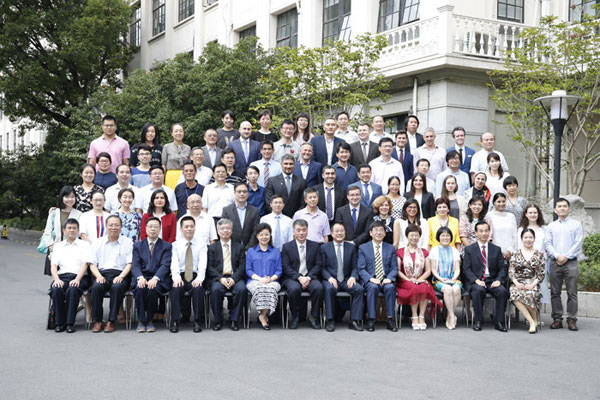 |
|
Group photo in honor of the opening of the Autumn Seminar. [Photo/Chinaculture.org] |
As part of the 2016 Visiting Program for Young Sinologists, the Autumn Seminar was held at the Shanghai Academy of Social Sciences (SASS) on September 5.
The first three days of the seminar was spent at SASS listening to lectures given by experts from various fields. Some of the prestigious experts included Yang Jiemian, Jiang Yihua, Wang Zhan and Zhang Weiwei. Afterwards, visiting sinologists went to their separate cooperating organizations - SASS's sub-institutes, Fudan University, East China Normal University, and Shanghai Institutes for International Studies (SIIS) - and embarked on their further research and report-writing with the help of scholars there. The visiting sinologists also went on field trips around East China, to see for themselves China's economy, rule of law and cultural progress since the reform and opening-up in 1978.
The 2016 Visiting Program for Young Sinologists was jointly hosted by the Ministry of Culture and the Chinese Academy of Social Sciences (CASS). Nearly 30 young sinologists from 23 countries and regions, including Brazil, Peru, Belgium, India, Russia and America, were invited to join in the program. They are currently on a journey to discover China's history, art, philosophy, literature, economy, politics, religion, modern society and international relations.
The 2016 program encompassed three seminars in total, with two held in Beijing and Shanghai, and the last in Xi'an. This year's program is more diverse and down-to-earth. The program aims to encourage and support more foreign sinologists, researchers and think-tank scholars of China studies to know more about China' realities. China hopes to nurture its own young sinologists and think-tank analysts around the globe and build a platform to facilitate their work. Furthermore, via their work, China's research institutes and think-tanks are willing to establish longstanding partnership with corresponding overseas organizations, so as to conduct more exchanges and realize mutual benefit and win-win cooperation.
|
|
|
|
|
|
|
|
